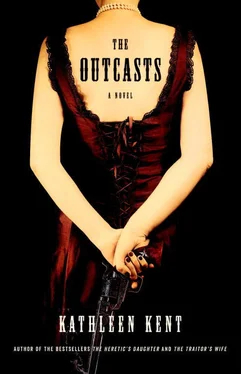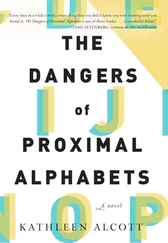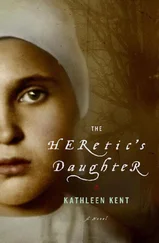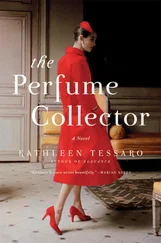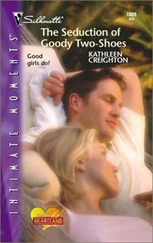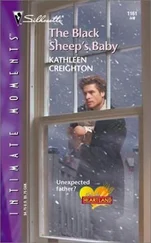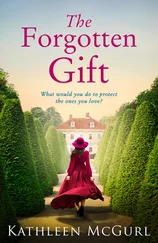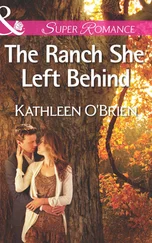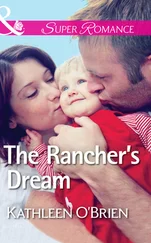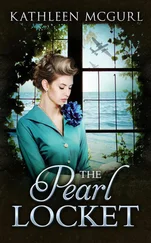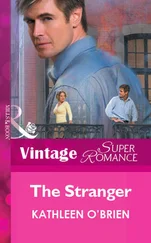When the train was ready to depart, Lucinda embraced her former student and helped her as she stepped onto the railcar.
May turned and said, “Soon we’ll be sisters.”
Lucinda’s smile faltered. She looked at the girl in the ill-fitting, hastily bought dress and for an instant fought a powerful desire to pull the girl from the train, tell her that a mistake had been made, that they were leaving instead for Galveston. But she remembered the blushing, triumphant smiles on May’s face that morning. She steeled herself by replaying the memories of May and Bill standing together, the girl’s eager eyes filled with adoration, Bill’s gaze flooded with simple lust. She willed herself away from tender thoughts by imagining herself supplanted by May, deserted and left behind. May was resourceful, young, and beautiful. She would survive.
Lucinda smiled encouragingly. “You must now call me by my Christian name.”
May peered nervously from the window, calling out, “Good-bye, Lucinda, good-bye,” and they waved at each other until the train had pulled away.
Lucinda stood on the platform for a while, pondering how best to get rid of the horse and buggy, finally deciding to sell them at the stable. The train to Galveston would not leave until the next morning, and she could use the money. None of it would matter, though, once Bill met up with her carrying bags of gold coins. He would be disappointed, and perhaps angry, that May had slipped away from him; however, she knew he’d get over it, and soon.
She took a room in a hotel for the night and dosed herself heavily with laudanum. But it was hours before she could sleep, her eyes open and filled with images of May stepping off the coach in Fort Worth in a few days’ time, being stared at and scrutinized by men who would be astonished that such a beauty, barely more than a child, would be making her way through town unescorted; seeking out the boardinghouse that Lucinda had assured her was respectable; presenting herself finally to the boardinghouse mistress, a woman by the name of Mrs. Landry.
Lucinda’s last troubled thought before the laudanum did its work was of May handing Mrs. Landry a sealed letter of introduction that read, simply, Call us even. Lucinda.
Whatever was in the open wagon sitting at a distance on a path off the main road had brought a small group of men and women crowding around it. It was still early morning but the sky was a clear, unhindered blue, and the clustered figures were lit by the strengthening daylight.
Nate perched on the lower branches of a tree, the only place that offered him an elevated view across the expanse of dried prairie fields, and watched them through the field glasses. Dr. Tom had not wanted to ride into Middle Bayou so exposed, risking being shot by McGill or his men from some homesteader’s attic.
Dr. Tom stood below, peering up at him through the branches. “Well?” he asked.
“There’re some settlers gathered around a wagon looking at something.”
“A dead something or a live something?”
Nate looked for a few moments longer, taking note of the large turkey buzzards perched on the roof of the nearest house. “Can’t tell for sure, but I would guess dead.”
Dr. Tom motioned him down and stood for a while with his back braced against the tree, his breathing labored. When Nate had lowered himself to the ground, Dr. Tom told him, “I believe I’m going to let you take the lead on this one. I’m feeling a bit hollow.”
Nate took in the pallor of the ranger’s face, the pouches beneath his eyes swollen like bruises from a fight, and knew it was more than just the laudanum.
Soon after Crenshaw’s torture and hanging, Dr. Tom had slipped off his horse onto his knees, violently heaving the contents of his stomach onto the ground. He had then climbed back on his horse, wiped the back of his sleeve across his mouth, and said, “George used to marvel that I could doctor with a cool head and a steady hand, even with blood up to my ankles, and yet still get weak-kneed after hanging a man who deserved it. But I always sensed that when you willfully kill a man, even for righteousness’ sake, and start feeling all right about that, it’s time to find different work.”
Nate lifted his chin in the direction of the wagon. “Why don’t you stay here and let me go talk to them.”
In response, Dr. Tom mounted his horse and told Nate, “It’s hard to ask questions and keep a vigil at the same time.” Leading Crenshaw’s mare, he followed after Nate at a gallop across the fields towards the settlers, who scattered briefly at their approach. Some of the men had rifles, which they raised defensively. Nate thought that as a whole they looked astounded, and a few near terrified.
Nate stopped at a distance and shouted, “Texas law here. Don’t go poppin’ off.” He announced their names and purpose and waved at the men to lower their guns.
They rode closer and saw two men, one young, one older, lying faceup in the wagon, both dead, both bloodied and covered by a quilt pulled up to their necks. Two women, a mother and daughter, Nate guessed, were wailing in grief, grappling to hold on to the young man’s hand that had slipped over the edge of the wagon.
A settler with the girth of an accountant stood behind the crying women and stared into the wagon, his fine suit covered with clay mud that had dried to a chalky film.
Nate legged himself off the horse and motioned people to clear a path. He climbed into the wagon and hunkered down, pulling the quilt off the dead men. His actions brought a collective outcry from the gathering and a frantic, hysterical pitch to the women’s keening. The younger victim had been shot through the chest; pieces of rib showed from the wound made by a shotgun blast. The older one had been shot in the gut with a pistol, and his face was nowhere near peaceful. Nate turned back to the crowd. “What happened here?”
“My son was murdered.” The large man crossed his arms protectively in front of his own chest.
Nate motioned for his partner to climb up into the wagon, and, after briefly waggling the stiffened joints of the men’s hands, Dr. Tom said under his breath, “They’ve not been dead but a few hours.”
Nate asked the grieving man, “What’s your name, sir?”
“Euphrastus Waller.” Pointing to the corpse of the young man, he said, “That’s my son, Elam.” Spittle hung in threads from his lips, and the rawness of it made Nate want to turn his head away. “He was paralyzed, confined to a chair,” Euphrastus added, almost as an afterthought.
Nate turned a questioning eye to Dr. Tom and pointed to the mud evenly caking the bottoms of Elam’s shoes.
“Who’s this?” Nate asked, indicating the other dead man in the wagon.
“His name is Bedford Grant.” A pale, straw-haired young woman stepped forward. “I’m Jane Grant, his daughter.” She had been crying, her eyes swollen and red-rimmed, but to Nate she seemed very much in control of her emotions and looked more angry than stricken.
Dr. Tom nodded at the wound in Bedford Grant’s stomach and said, “Calling card from McGill.”
Euphrastus Waller’s legs gave out, and his wife and daughter rushed to his side. They struggled to keep him from falling, but the women sank along with him onto the road, their full skirts ballooning out and settling heavily into the dirt. Some of the men moved in to help him to his feet again.
Another settler, his left arm missing from the elbow, moved closer to the wagon and came to stand next to the Grant woman. He hovered by her side, and for a moment, Nate thought he was going to put his one good arm around her.
“Who’re you?” Dr. Tom asked.
“I’m Robert McKenzie. I own a farm just up the road. A man came to Middle Bayou a short while back. Said his name was Bill Carter. He claimed to be the schoolteacher’s brother.”
Читать дальше
